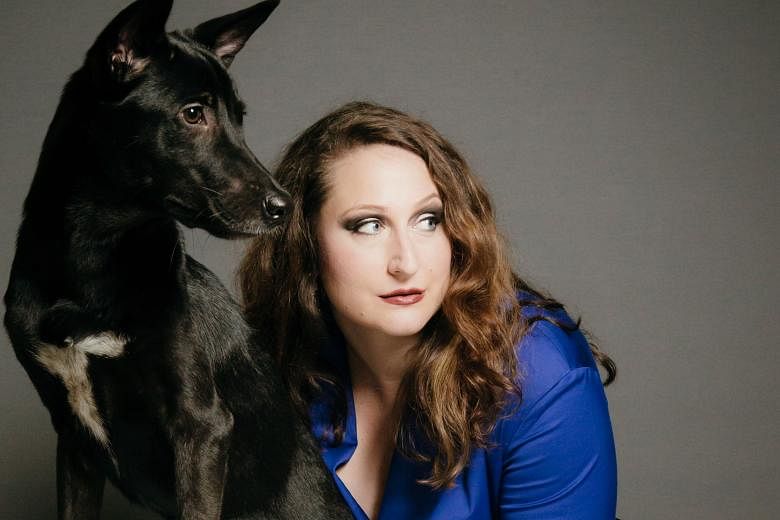The power that language has to shape and distort relationship dynamics is the clever, disturbing heart of this stand-out production, written, directed and performed by Edith Podesta.
Start with the title - B*tch: The Origin Of The Female Species. Today, one so quickly assumes the first word is a slur that the "i" of individuality within it will be in this review replaced by a meaningless asterisk.
But strip away preconceived notions as Podesta does in text and performance, and the word means "female dog". "Dog", as the human character played by Helmut Bakaitis says, is a univeral metaphor. (As is its palindrome.) Consider how dogs run silently through mythology, often as agents between worlds. Sirius is the brightest star in the sky, Cerberus the hound that guards the gates of the dead and canine-headed Anubis watches the judgment of Egyptian souls.
There is an obvious parallel to the voiceless, unheeded female in human mythology.
-
REVIEW / THEATRE
-
B*TCH: THE ORIGIN OF THE FEMALE SPECIES
Edith Podesta
M1 Singapore Fringe Festival
Esplanade Recital Studio/Thursday
-
BOOK IT / B*TCH: THE ORIGIN OF THE FEMALE SPECIES
-
WHERE: Esplanade Recital Studio, 1 Esplanade Drive
WHEN: Today, 8pm, limited seats
ADMISSION: $22 from Sistic (go to sistic.com.sg or call 6348-5555)
The work, commissioned by the M1 Singapore Fringe Festival, is a simple story with a complex heart. A dog (Podesta) observes a man (Bakaitis) whose wife is stolen away by dementia and who later suffers a stroke. As he is sucked into the trap of his brain, his dog follows and the stage is set to retell his life and some of the myths underpinning human civilisation, using feminist perspectives.
The actors are aided in this by stellar multimedia from Brian Gothong Tan and lighting from Adrian Tan. These transform the cosy domestic set-up of sofa and side tables at the Esplanade Recital Studio into a star map that Podesta treads with Bakaitis. As Sirius does with the heavenly hunter of legend, dog and man move through the skies and into a realm where stories are made, but not easily communicated.
Transmission of these stories can be corrupted by the lack of a common language between human and dog, man and woman, and a man suffering from aphasia after a stroke and his speech therapist (Chanel Ariel Chan).
Podesta is perfectly canine when she is mute, tilting her head, nuzzling flowers, following Bakaitis' footsteps and pressing her face to the stage door until he re-enters. The illusion falters a little once she begins speaking in idiom - the rain that falls inside the house, meaning a shower, for example - but it is like getting used to Shakespeare. This is the vocabulary of storytelling, of myth-making and it illustrates the deep gap between the animal and the human - and later, between man and woman.
Bakaitis is familiar from his role as the Architect in the Matrix Reloaded and Matrix Revolutions movies, but here, he displays a depth of emotion Hollywood denied him. Between him and Podesta exists a chemistry so strong that the viewer must rethink the word "platonic" as well.
Yet the real show-stealer turns out to be Edie, an eight-year-old miniature schnauzer who lightens the mood by doing tricks for doggie treats. It is a treat for the audience too, to be brought back to earth after roaming the mythological heavens. To paraphrase Carl Sagan, who also wrote about impossible connections in space and time: For such small creatures as we, the vastness of the universe is made bearable only through love.


